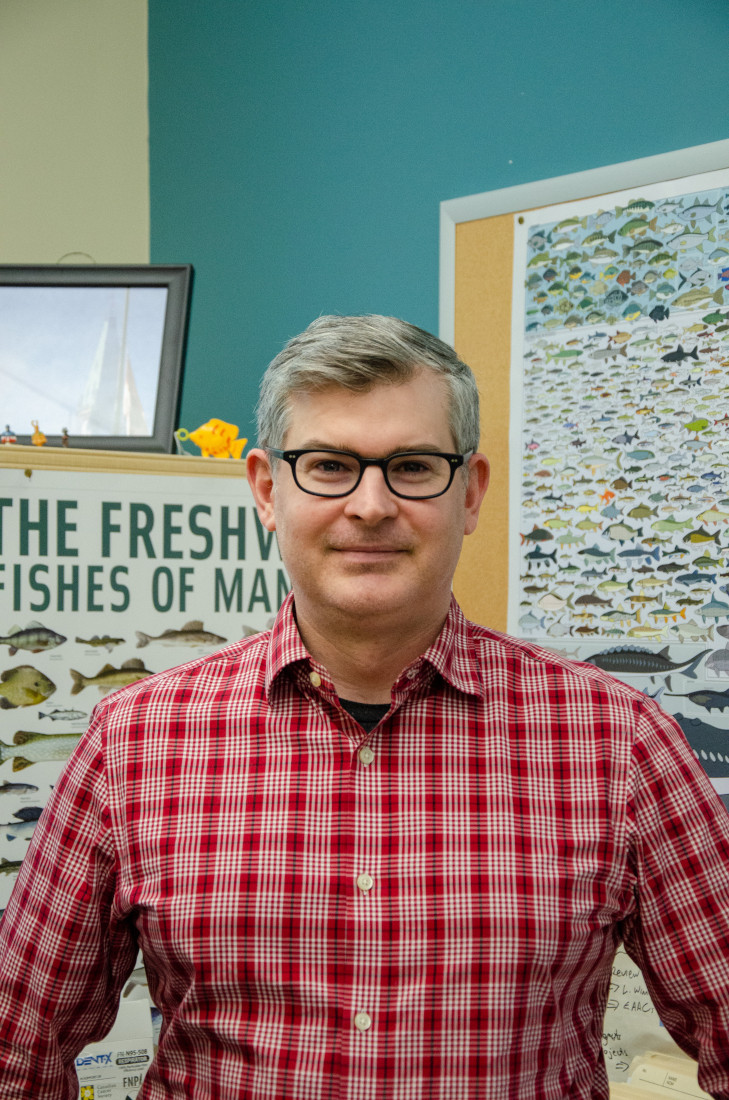Drought, trout and hot as all get-out
A 2021 year-in-review for Manitoba’s climate
Caleb Hasler, associate professor of biology and chancellor’s research chair at the University of Winnipeg. (Photo by Keeley Braunstein-Black)
Blair notes that public interest in climate change in Manitoba has increased this year due to how extreme the weather has been. The dry weather and record-low rivers have been impacting agriculture in the province, and this summer Winnipeg had 35 days over 30ºC, tying the record from 1988.
“As a climatologist, it’s still rather shocking to me that we had a temperature of 49.6ºC recorded in Canada. That is a remarkable difference from normal,” he says. “When we graph that data, it literally goes off the chart.”
Nora Casson is the Canada research chair in environmental influences on water quality and an associate professor in the U of W’s geography department. She studies the impacts of human activities on water systems and ecosystems and explains that the dryness of the 2021 winter and summer has put stress on many ecosystems in the province.
“All of the ecosystems in Manitoba are adapted to a regime where most of the water comes in the snowmelt in the spring,” she says. “The projections are for the kind of winter that we had last year to be more prevalent, where the snowfall is less and less. That has a variety of ecosystem consequences.”
Casson explains that this low water level, somewhat boosted by precipitation in the fall, “messed up” nutrient delivery, which typically relies on snowmelt. She says the dryness also contributed to the major forest fires that happened in summer.
“Any kind of hydrological system has a kind of memory or lag effect, so the conditions today depend on the conditions that occurred yesterday and last month and last year,” she says. “We’re going into another winter with really dry conditions, and it remains to be seen how much snow we get this winter, but there’s the potential for these dry conditions to set us up for another drought.”
Caleb Hasler, associate professor in the U of W’s biology department and chancellor’s research chair, researches the impacts of human activities on freshwater fish and notes a few critical and troubling issues impacting fish in Manitoba.
Hasler says the low Assiniboine River impacts fish movement and increases the likelihood of fish getting stuck in pools that then run out of oxygen, and that there have been massive kill-offs of fish in Lake Winnipeg – some from disease and health issues and some for reasons currently unknown.
Critically, Hasler says, fish body temperature is dictated by water temperature, so heatwaves change fish physiology and increase energy needs. If fish are unable to find enough food, that impacts their reproductive abilities and increases mortality rates.
“These things are also exasperated by interactions with people,” he says. “If a recreational angler is practicing catch-andrelease angling, and they catch a fish when it’s really hot out, they’re going to cause it to use more energy, and it will take more time to recover, and they might not be as healthy as they would be if they were caught at a cooler temperature.”
Published in Volume 76, Number 10 of The Uniter (November 18, 2021)







